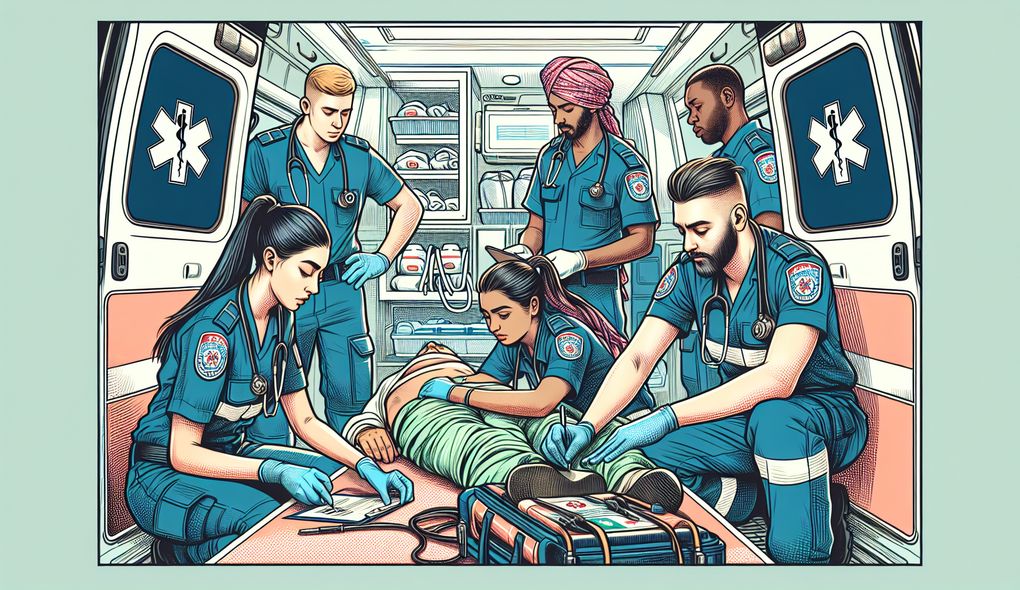How do you respond to feedback and constructive criticism from colleagues and supervisors?
INTERMEDIATE LEVEL

Sample answer to the question:
When it comes to feedback and constructive criticism, I believe in taking it as an opportunity for growth. I always appreciate the perspectives of my colleagues and supervisors and understand that their feedback is meant to help me improve. I listen carefully to their suggestions and ask for clarification if needed. I take note of their comments and work on implementing their suggestions into my practice. I believe that effective communication is key in fostering a positive work environment, so I strive to maintain an open and respectful dialogue with my colleagues and supervisors.
Here is a more solid answer:
When it comes to feedback and constructive criticism, I always approach it with an open mind and a desire to improve. I actively seek feedback from my colleagues and supervisors, whether it's through informal conversations or more formal performance evaluations. I value their insights and perspectives, as they have a wealth of experience and knowledge. When receiving feedback, I make sure to listen actively and ask clarifying questions if needed. I take notes and reflect on the feedback to identify areas for improvement. I then develop an action plan to address those areas and actively work on implementing the suggested changes. I believe in maintaining open and respectful communication, so I follow up with my colleagues and supervisors to discuss the progress I have made based on their feedback. This not only shows my commitment to growth but also helps build stronger relationships within the team.
Why is this a more solid answer?
The solid answer goes into more detail about how the candidate actively seeks feedback, implements suggestions, and maintains open communication. However, it could still be improved by providing specific examples of how the candidate has implemented feedback and the positive impact it had on their performance and relationships with colleagues and supervisors.
An example of a exceptional answer:
I believe that feedback and constructive criticism are invaluable tools for professional development. I actively seek out feedback from my colleagues and supervisors, both informally and through scheduled performance evaluations. For example, I often request feedback during debriefings after critical incidents, where we discuss our performance as a team. I listen attentively to their insights and perspectives, taking notes to ensure I capture all the details. When implementing feedback, I develop a plan of action that includes measurable goals and a timeline. For instance, if someone suggests improving my decision-making skills under pressure, I might enroll in a course on critical thinking. I also strive to maintain open communication by regularly checking in with my colleagues and supervisors to update them on my progress. In one instance, I received feedback about my communication style during high-stress situations. I actively worked on this by practicing active listening and seeking out new communication techniques, such as using concise and clear language. As a result, my colleagues and supervisors noticed a positive change, mentioning that they felt more confident in my abilities during emergencies.
Why is this an exceptional answer?
The exceptional answer provides specific examples of how the candidate actively seeks feedback, implements suggestions, and demonstrates growth. It shows a proactive approach to professional development through continuous improvement and learning. The candidate also highlights the positive impact their efforts had on their performance and relationships with colleagues and supervisors.
How to prepare for this question:
- Reflect on past experiences where you received feedback or constructive criticism and consider the actions you took to address them.
- Practice active listening skills to ensure you fully understand the feedback being provided.
- Research professional development courses or resources that can help enhance your skills based on feedback received.
- Consider the potential impact of implementing feedback on your relationships with colleagues and supervisors and how you can communicate your progress effectively.
What are interviewers evaluating with this question?
- Effective communication and interpersonal skills

